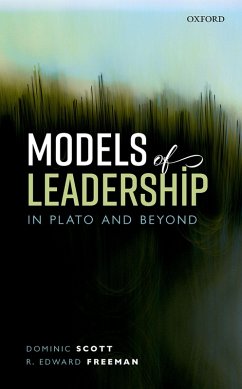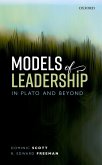Leadership has become a prevalent concept across a variety of disciplines, among them history, politics, management studies, economics, and psychology. An array of definitions and theories have been proposed both by those who study leadership, and by those in leadership positions themselves. Here, Dominic Scott and R. Edward Freeman adopt a highly innovative approach by going back to one of the greatest thought leaders of all time, the Greek philosopher Plato. Plato brought a richness and complexity to common ideas about the nature and purpose of leadership. Rather than attempting to give a single 'one-size-fits-all' definition, his strategy was to break it into its different strands. He presents several 'models' of leadership, mostly through images or analogies: the leader as doctor, navigator, artist, teacher, shepherd, weaver, or sower. Each model points to features of leadership that we intuitively recognize to be important, and which still carry significant weight today, such as curing a social malaise or charting a new course. Scott and Freeman set out the essentials of Plato's thought and illustrate each model through modern case studies, including presidents, CEOs, and Nobel laureates. They also measure Plato's models against more recent concepts, using his insights to throw light on contemporary theory and practice. With a principal focus on leadership, and an assumption of no prior knowledge of Plato's works, this book takes a multi-faceted approach to a complex phenomenon.
Dieser Download kann aus rechtlichen Gründen nur mit Rechnungsadresse in A, B, BG, CY, CZ, D, DK, EW, E, FIN, F, GR, HR, H, IRL, I, LT, L, LR, M, NL, PL, P, R, S, SLO, SK ausgeliefert werden.









